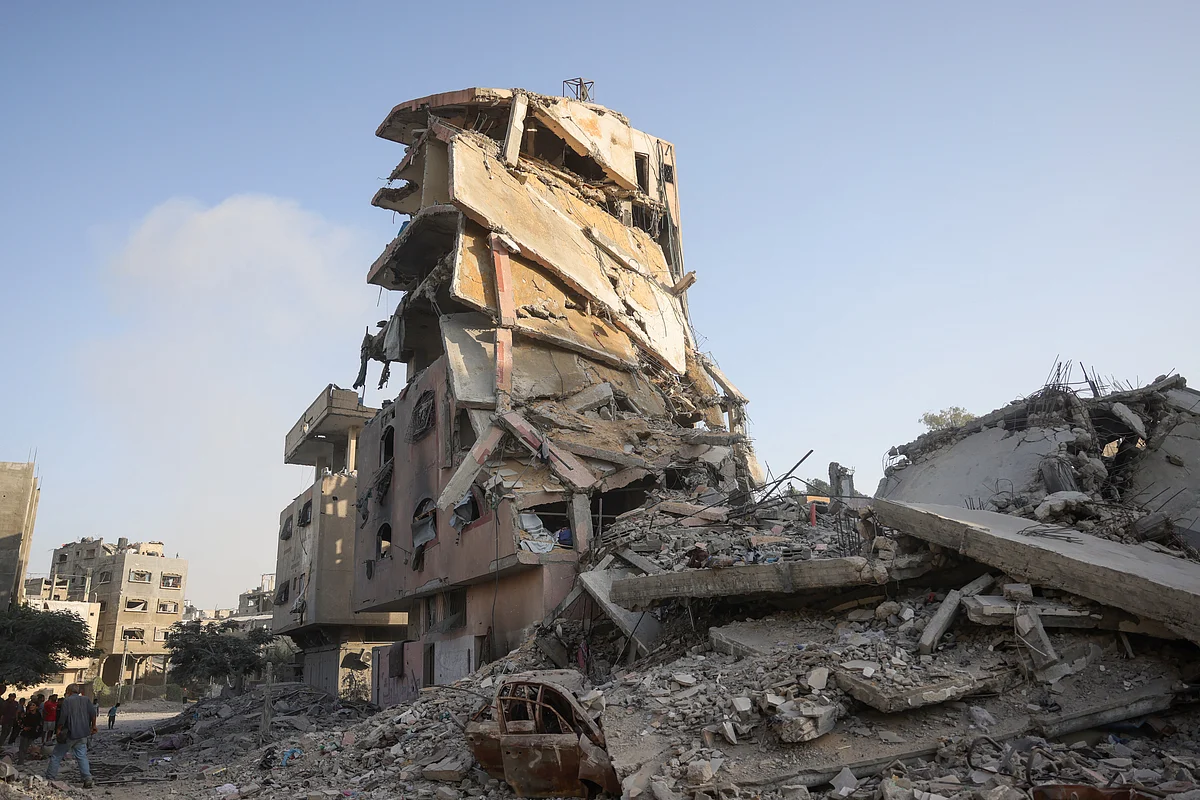Rebuilding Gaza requires more than money, it requires trust
Only a united Palestinian vision and global commitment can make reconstruction real

There is a wide consensus that the latest and most devastating Israeli war on Gaza marks a turning point in its future. Widespread destruction has affected everything-human lives and infrastructure — leaving Gaza nearly uninhabitable. As the conflict rages on, the human and material losses continue to rise, with over 60,000 dead and nearly 150,000 injured. Yet even in the midst of this devastation, we must think ahead. This war will end, eventually. And when it does, more than two million Palestinians — trapped in a small, besieged strip — will still hope for a future without war, where their basic rights are respected and their suffering finally ends.
Visions for Gaza’s future are as divided as the parties to the conflict. Some may hope that worsening conditions will push Palestinians to abandon their land. But even in the best-case scenario, it could take up to 10 years to rebuild Gaza if funding is available and reconstruction begins without obstacles.
Damage beyond buildings
The damage goes far beyond buildings. Before the war, unemployment was already around 50%. Now it’s even worse, with almost no productive projects or job opportunities for more than two million Palestinians. Most of Gaza’s residents are either displaced or, at best, living in tents due to repeated evacuations enforced by the Israeli military.
The majority of the population is living in a state of food scarcity, with predictions that Gaza is on the verge of famine. The healthcare system has collapsed in terms of infrastructure, medicine, equipment, and personnel. Farmland has been destroyed and will need chemical treatment to be usable again. Livestock production has been decimated due to food shortages. Water, sewage, and electricity systems are out of service. External aid, which is already scarce during wartime, cannot be relied upon, not only because Israel blocks the entry of supplies through all the crossings it now controls, but also because donor contributions have declined since the early days of the war, despite the rising need.
What complicates reconstruction even further is donor hesitancy. Few countries will invest in rebuilding Gaza’s infrastructure unless they are assured the war is truly over and will not be repeated. No one will fund reconstruction today only for it to be destroyed again tomorrow, especially when the price tag runs into billions of dollars. This presents a major dilemma for the near future, particularly since Gaza’s dense population means there is virtually no area untouched by destruction.
Sense of hopelessness
Another concern is the growing sense of hopelessness. If left unaddressed, this could lead to long-term social, political, and security problems. The answer lies in preparing for reconstruction now, while also working towards serious peace talks and fixing internal Palestinian divisions. It is crucial to reform the Palestinian Authority and build momentum for a future independent state.
We must also rebuild Palestinian trust in the international community, trust that has eroded as the world continues to selectively engage with the Palestinian issue, focusing on isolated aspects while ignoring the broader realities of land and people. The international community must also rebuild its trust in the Palestinian Authority.
Any viable movement towards peace and development must be anchored in a national Palestinian project that reflects the aspirations of its people. This requires reshaping the Palestinian political landscape from within. A temporary administrative body of independent figures could govern Gaza, paving the way for national elections at the earliest opportunity to establish legitimate representation for the Palestinian people.
Reconstruction process
The reconstruction process should begin now by convening an international donor conference to fund recovery. This must include clear guarantees that Gaza’s infrastructure will not be destroyed again. Arab and international stakeholders must agree on a framework that ends the destructive cycle of “no rights or total ruin.” Without such a shift, past policies will repeat themselves, and Gaza will remain trapped in an endless loop of physical and human destruction. If the necessary billions in aid are secured, reconstruction must begin the moment the war ends. Current estimates suggest that restoring Gaza’s pre-war development levels could take decades.
Some countries have already pledged to increase investment in Gaza, creating commercial and even tourism-related opportunities. Ideally, these promises will materialise with support from international financial institutions. However, none of this will matter unless Palestinians remain on their land and are allowed to shape a future of prosperity. This includes building a seaport, desalination plants, a transport corridor linking Gaza to the West Bank, and harnessing the coastline for tourism and economic ventures. Such efforts may help transform Gaza’s political and security environment and bring long-term stability to the Strip and the region.
Slow change in situation
Of course, achieving Gaza’s development goals will not change its situation overnight. The devastation is massive, and the social and public health conditions are dire. Without addressing the root causes of the conflict, progress will be slow. Any meaningful effort in Gaza will require time to yield economic, social, and political results. Any solution must cover all fronts — political, economic, social, educational, media, and healthcare. One-dimensional approaches or disjointed policies may only backfire.
The top priority now is ending the war, not just a temporary truce, but a true cessation. If the war persists, the cost will only continue to rise across every dimension. Clear development plans and timelines must be established to change conditions on the ground, through international and UN-backed efforts, ensuring that Palestinians can rebuild their lives, not just to restore what was lost, but to establish a society capable of determining its own future and achieving peace as the cornerstone of the future.
Fahad Essa AlMahri currently serves as Head of the Trends Research and Advisory Dubai Office.
Network Links
GN StoreDownload our app
© Al Nisr Publishing LLC 2026. All rights reserved.